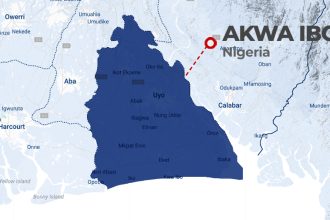The United Nations’ top court has ruled that three small islands in oil-rich waters belong to Equatorial Guinea, ending a long dispute with Gabon, approximately 53 years.
The International Court of Justice, based in The Hague, said that the islands—Conga, Mbanié, and Cocoteros—rightfully belong to Equatorial Guinea, based on a 1900 treaty between colonial powers France and Spain.
The islands are almost uninhabited but are located in a sea area believed to have large oil deposits. Both countries had claimed ownership of the islands for decades.
The court rejected Gabon’s main argument, which was based on a later agreement called the 1974 Bata Convention. Gabon had claimed that this newer treaty gave it control over the islands, but the court disagreed.
In its final ruling, the court stated that the islands were held by Spain before Equatorial Guinea gained independence in 1968, and that ownership was passed on to Equatorial Guinea.
As part of the ruling, Gabon must now remove its soldiers from Mbanié, the biggest of the three islands. Gabon had taken control of Mbanié in 1972 by sending its army to push out Equatorial Guinean troops. The military has stayed there ever since.
Tensions between the two countries calmed over the years until the early 2000s, when the discovery of possible oil in the Gulf of Guinea reignited interest in the area.
In 2016, after many years of talks led by the United Nations, Gabon and Equatorial Guinea agreed to let the ICJ settle the matter.
Reacting to the ruling, a spokesperson for the Gabonese presidency, Guy Rossatanga-Rignault, said the two countries would now need to talk things through.
“Gabon and Equatorial Guinea have to live side-by-side, we can’t move away from each other. Therefore we will have to talk it over to solve all these problems,” he told AFP news agency.
Both Gabon and Equatorial Guinea are oil-producing nations, but they have seen a drop in output in recent years. Experts say this is due to poor investment, ageing oil wells, and not enough new oil exploration.











